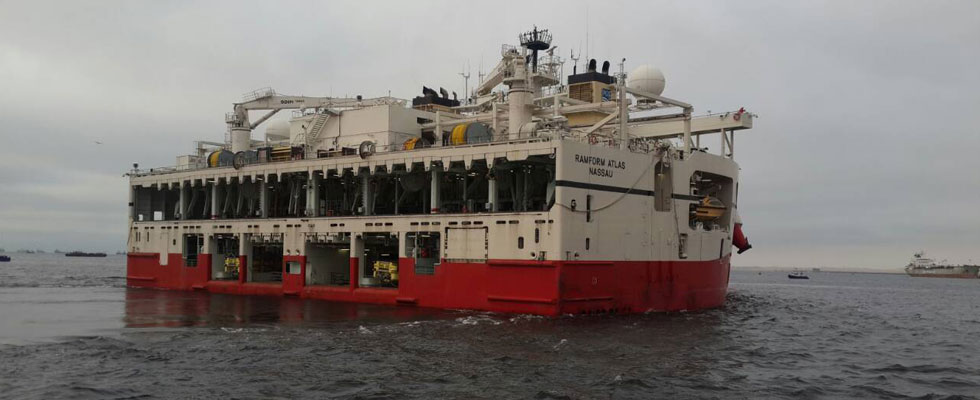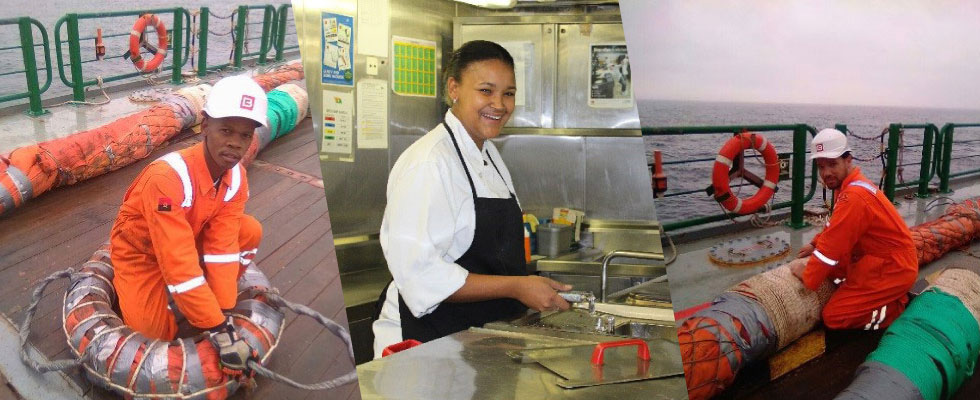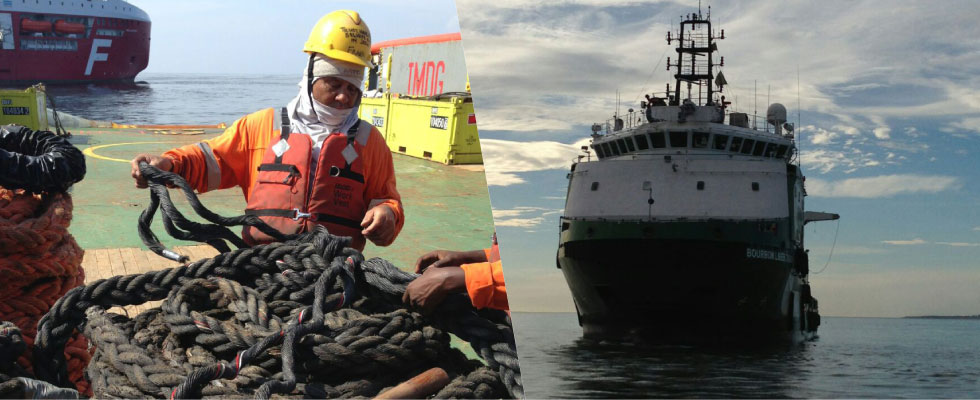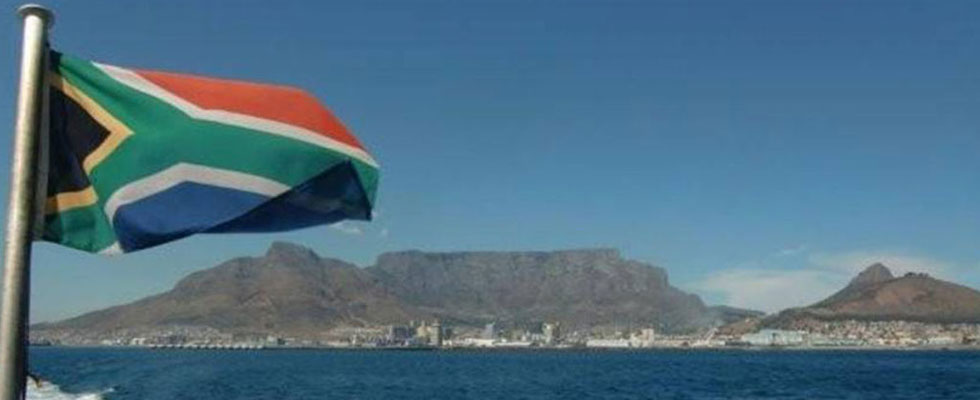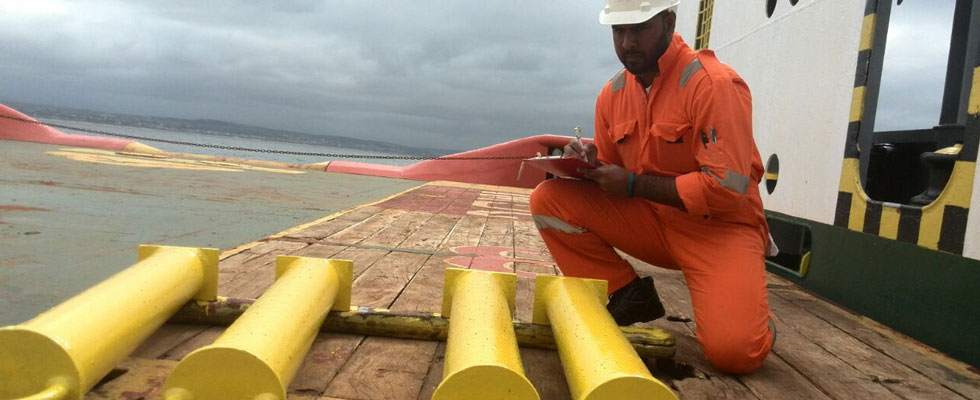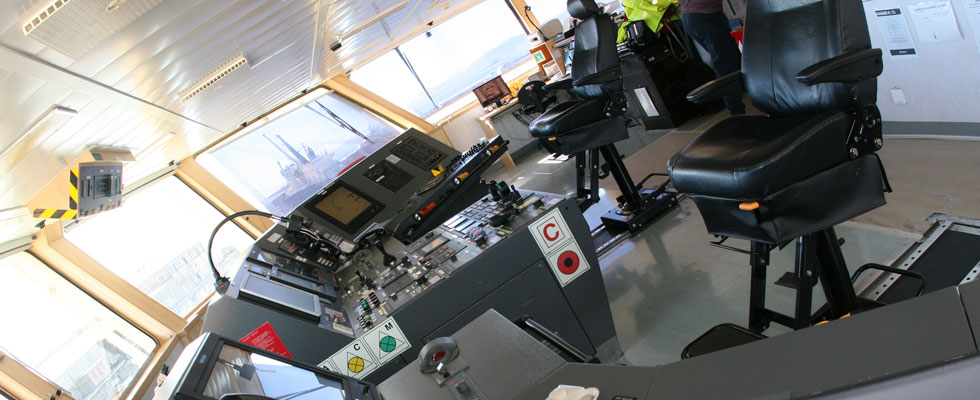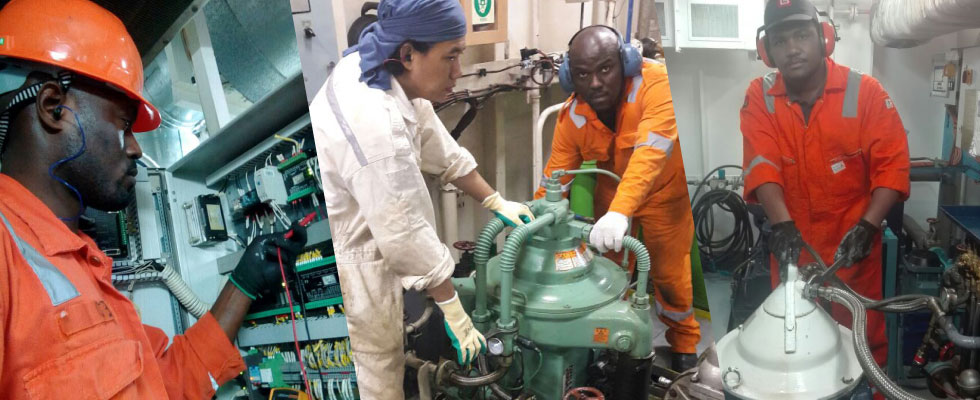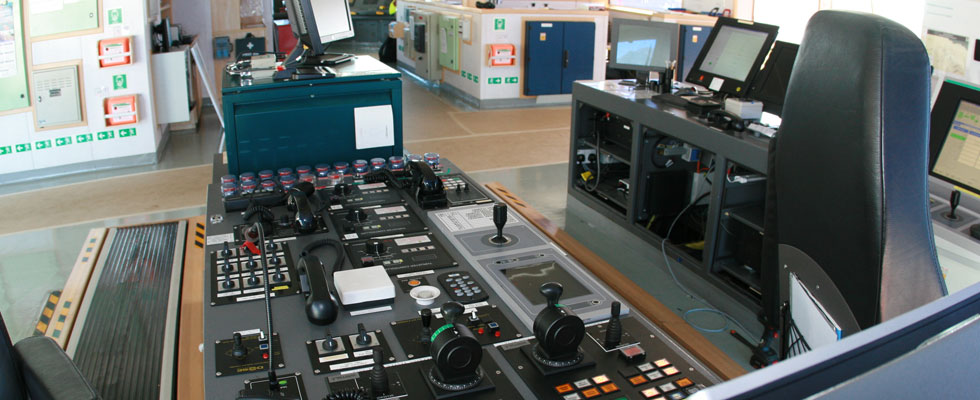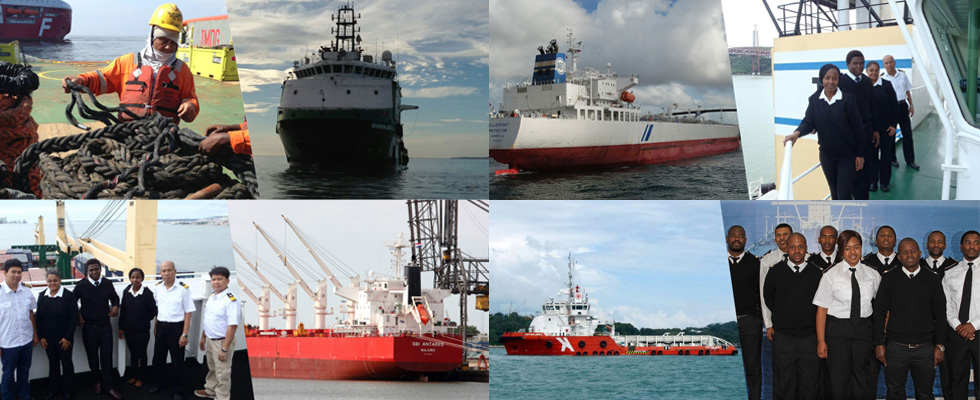

SEAFARING AS A CAREER
Interested in progressing your career as a seafarer?
Integrity, leadership, tolerance, dependability, attention to detail, self-control and composure, responsibility, independence, persistence, initiative, being adaptable and flexible.
A good seafarer must be capable of managing their own unique hazards and those around them.
The role of a seafarer encompasses a variety of ranks, with different levels of responsibility. Each role requires the seafarer to hold a valid Certificate of Proficiency (Ratings) or Certificate of Competence (Officers).
A vessel’s complement is divided into three main categories: the Deck, the Engineering and the Catering departments.
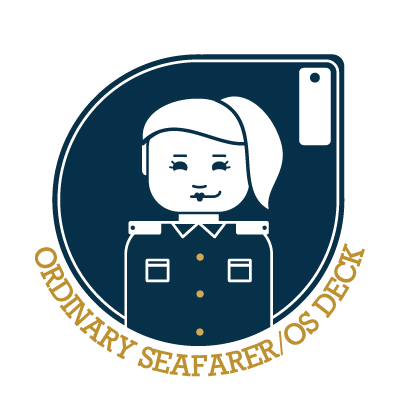
The lowest rank is that of the Ordinary Seaman (OS Deck) whose duties are to assist the Able Seafarer (AB) and may be called upon to do any one of many tasks, such as to stand as lookout, to scale and chip paint, to paint, handle lines in the mooring of the ship and to assist in the actual tying up and letting go of the vessel, amongst other duties.
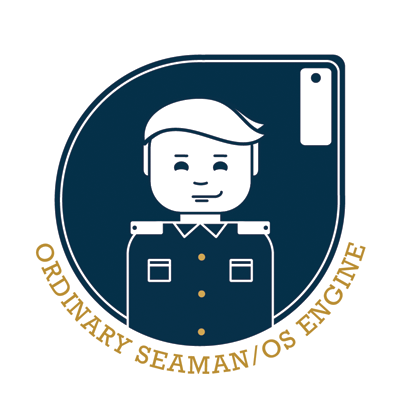
The Ordinary Seaman (OS Engine, a.k.a. Wiper) performs manual labour in the engine department, such as cleaning and painting, repair work such as chips and scrapes and ensures machinery spaces are kept in a clean condition.
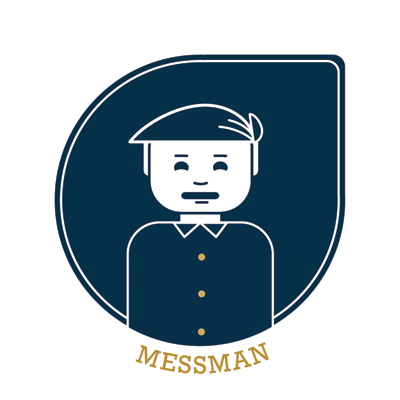
The Messman is an ‘all-rounder’. He may perform any of the following duties: Setting tables, serving food or waiting on tables. Part of his job is also to clean the dishes and equipment, prepare coffee and beverages, make beds and clean officers’ quarters. He is used wherever the Cook requires him. He is in training to become a Cook after completing enough sea time and completing a Cook’s food handling and hygiene course.
The Able Seafarer (AB Deck), by law, must be able to perform any deck duties aside from the actual navigation of the vessel. In general, his duties include the ability to splice wire or fibre line, to work aloft and over the side of the ship, to operate the deck machinery such as the windlass or winches, to paint and mix paint, to know the principles of cargo stowage, to be a good wheelsman and competent lookout, to overhaul and install any running or standing rigging on the ship and to be able to sew, repair and mend canvas and be able to assume the duties of the Coxswain.
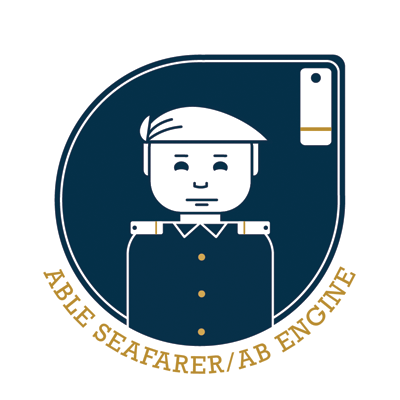
The Able Seafarer (AB Engine – a.k.a. Oiler) oils the bearings of the main engine and auxiliaries and stands watch in the engine room. He also swabs the piston rods and valve stems, feels off the thrust bearing, travels down the shaft alley feeling and oiling the spring bearings and feeling the stern gland and looking to see if sea water is running through.
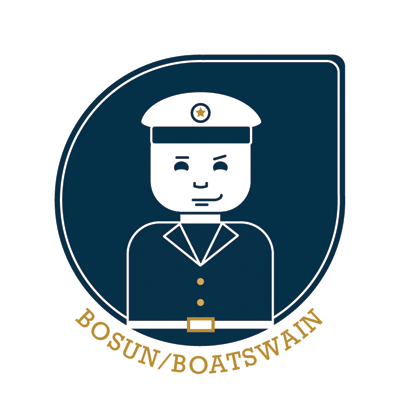
The Bosun (Boatswain) is an experienced able seaman responsible for anything and everything in the maintenance, care and protection of deck equipment and deck cargo. He also supervises the securing of the ship for sea and the loading and discharging of cargo. In addition, the Bosun assists the Chief Mate in ordering the deck stores.

The Cook supervises the maintenance and operation of the galley and living and eating quarters of the officers and crew. He orders the supplies for the catering department and plans and cooks the meals.
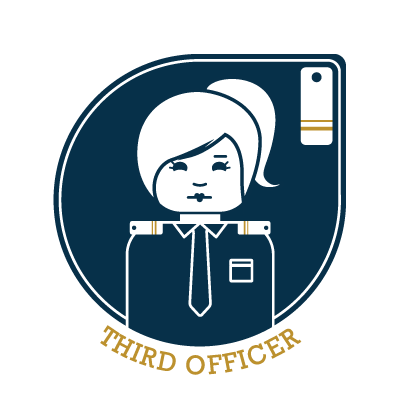
The Third Officer (Mate) is the junior deck officer who has completed and graduated from his/her cadetship. He/She is responsible for all life-saving equipment, keeps the ship’s log, follows the captain’s orders and assists in the navigation of the vessel. In port, he/she will assist or supervise in the loading and discharging of cargo.
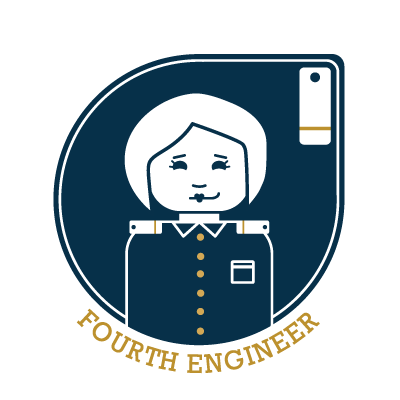
The Fourth Engineer is a newly graduated cadet, who stands engine room watch under 3rd or 2nd Engineer on larger ships.
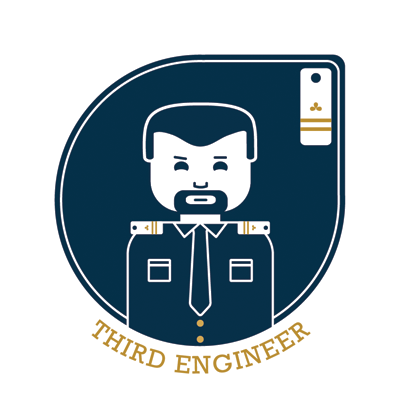
The Third Engineer maintains electrical equipment and auxiliaries under direction of the Chief Engineer.
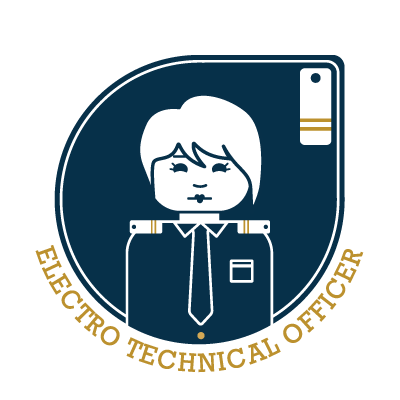
The Electro Technical Officer (ETO) handles several responsibilities on a vessel mainly related to electrical systems. He/She supervises the working of computer controlled machinery, as well as refrigeration and air conditioning.
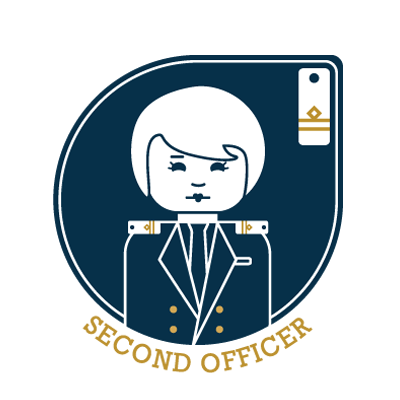
The Second Officer (Mate), usually the navigation officer, plots courses and takes celestial and terrestrial fixes and also handles the after deck when tying up.
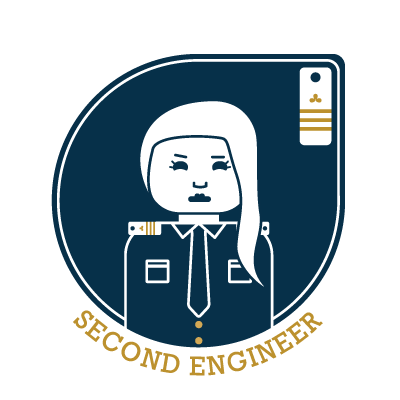
The Second Engineer is responsible for fuel, oil, fresh water and care of the boilers.
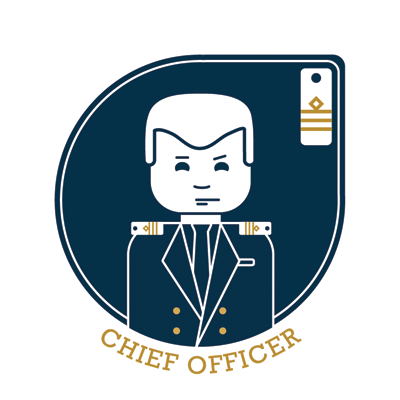
The Chief Officer (Mate) is responsible for the maintenance of the ship and proper stowage of cargo. He/She handles the fore deck in tying up, is a good navigator, a thorough seaman, possesses the necessary qualities of leadership and will assume command of the vessel in the event of the master’s death or inability to command the ship.
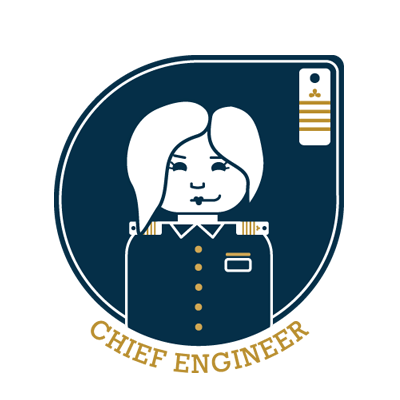
The Chief Engineer is in charge of and responsible for all of the machinery aboard ship.
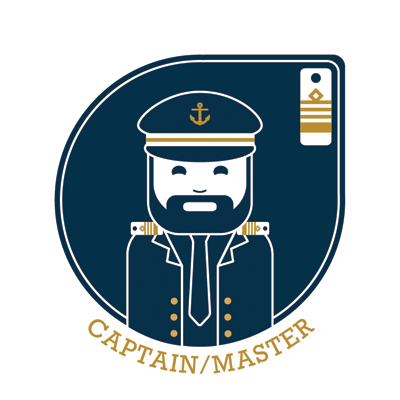
The Master (Captain) is in charge of everything and everyone aboard ship. He/She must be as closely acquainted with the steward’s department and the engine department as he/she is with the bridge, he/she must know the reason for every job performed aboard the vessel. The Master is the agent of the company which owns the ship and is not a member of the crew. He/She represents the company in every operation of the ship under his/her command. The Master has full responsibility of the ship.
In order to travel or work offshore an individual must:
- Be able to carry out their normal assigned duties without compromise to the safety of themselves or others.
- Be able to escape from the platform or helicopter in an emergency.
- Be able to take part in offshore survival training.
- Pose no significant risk to the safety of others on the installation by virtue of any underlying medical condition.
- Require no ongoing medical treatment which cannot be effectively delivered in the offshore environment.
- Require no medical treatment which has significant side effects incompatible with offshore work.
- Have no significant liability to sudden illness requiring medical intervention which cannot be delivered in the offshore environment.
- Gain an understanding of the various roles (see above:What does a career in seafaring entail?)
- Decide on career path (i.e. Deck, Engine or Catering) and enquire about the entry requirements and the capacity, (i.e. Rating or Officer).
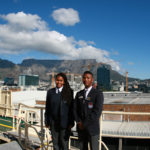 Candidates must complete the following Grade 12 subjects with a minimum 60 percent pass: Pure Mathematics, Physical Science and English in order to obtain the required entry level percentage to be considered for enrolment into any the following accredited tertiary maritime institutions.
Candidates must complete the following Grade 12 subjects with a minimum 60 percent pass: Pure Mathematics, Physical Science and English in order to obtain the required entry level percentage to be considered for enrolment into any the following accredited tertiary maritime institutions.
Applications to the institution of choice needs to be made in August each year. An online application needs to be completed and applicants need to submit copies of their Grade 11 and 12 (Term 2) report, certified IDs and other documents.
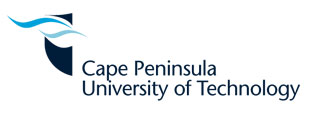
CPUT – Cape Town / Western Cape
(www.cput.ac.za)
- National Diploma: Maritime Studies*
- National Diploma: Marine Engineering*
*Soon to be replaced by 3-year Bachelor Degree Programmes respectively

DUT – Durban / Kwa-Zulu Natal
(www.dut.ac.za)
- Diploma in Nautical Studies
- Soon to offer Advanced Diploma in Marine Engineering
*Phasing out National Diploma: Maritime Studies
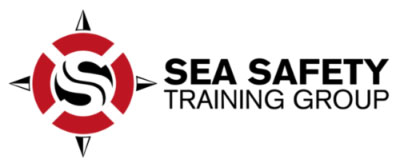
SSTG – Cape Town / Western Cape
(www.sstg.co.za)
- Deck Officer Programme
- Soon to offer Marine Engineer Officer Programme
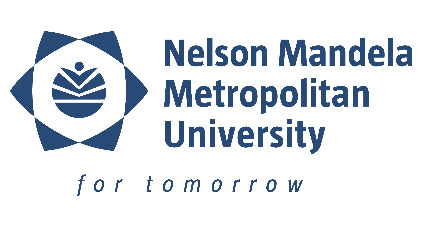
NMU – Port Elizabeth
(www.nmu.ac.za)
- Soon to offer Marine Engineering Degree Programme
- Future plans include offering a Deck Officer Programme
Students wishing to be included in the sea-going phase, must have completed and successfully passed all academic/theoretical components of the Deck (Navigation) or Marine Engineering Officer Programmes – as required under the STCW Convention, as amended and the SAMSA Code, as amended.
Requirements as follows:
- A valid SAMSA (or higher-requirement Flag state) medical examination, with a ‘fit-for-duty’ medical certificate
- A valid SAMSA eyesight test
- A valid South African Passport
- Updated CV
- Final academic record with all required subjects
All documents to be submitted using our online application form. Click here to access the form.
If you are qualified, please complete the CV form on the link below.
Click here to access the form.
Please ensure you have completed all required fields and provided all the necessary and required supporting documentation.
Incomplete applications will not be considered.
APPLICATION CHECKLIST:
Please have original or scanned copies – in pdf or jpg format – of the following documents available for uploading.
- Updated CV, with details of all related work.
- Three contactable supervisory work references from three different vessels/companies.
- Full set STCW training certificate copies (Medical First Aid, PSSR, PST, CISC, Fire Fighting, Designated Security Duties) – Officers will require additional certificates, as applicable.
- Your Certificate of Proficiency (CoP) or Certificate of Competency (CoC).
- Copy of your valid seaman’s record book (new books have expiry dates).
- Your valid medical certificates (SAMSA).
- Your vaccination booklet.
- Last performance appraisals (from each vessel served on).
Should you qualify for consideration, one of the MCS team will contact you for an interview.

